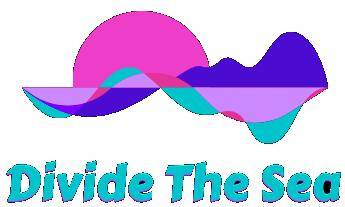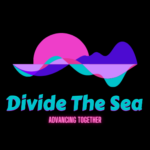By: William Butler
DISCLOSURE: This post may contain affiliate links, meaning this site may receive a commission if you decide to make a purchase through my links, at absolutely no cost to you. This please read my affiliate disclosure page for more information. Also, please read our article disclaimer

Planning your future brings forth a bunch of serious questions. One major one for me was the difference between and comparison between an IRA and a 401K. People have one or both. It all depends on your employment, funds, and possibly preference. The great think about this blog post, is that you are here. So, learn about both, do some research, and talk to you financial advisor. The sooner you start the more money you will have (of course, that’s not a sure thing). I wish you a lot of luck on your journey and look forward to hearing from you about which you think is best.
IRA or 401K OR Both
In the U.S., Social Security is one of the most important financial safety nets for retirees. But these benefits are often overshadowed by other savings accounts, such as 401(k)s and IRAs, which are more popular among millennials and workers without employer-sponsored retirement plans. They provide a way to save money tax-free and delay taxes on investment gains until you begin withdrawing funds in retirement. So which one should you choose?
The IRA is a great option for investors who want to take advantage of tax-deferred growth, while the 401(k) offers an individual approach to retirement planning that includes matching funds from employers. Here’s what you need to know before deciding which account makes the most sense for your retirement savings plan.
PROS AND CONS OF THE 401(K)
Pros:
- It’s more affordable than the IRA.
- It includes employer-sponsored matching funds.
- Withdrawals are taxed at a lower rate than those from an IRA.
- The 401(k) is easier to set up and maintain than an IRA.
Cons:
- The money is not immediately available when you retire. Instead, you must wait until the age of 59 1/2 to start taking money out. If you need to withdraw money before that age, then you must pay a 10% penalty on the amount withdrawn plus any income tax due. This means that if you take out $100,000 from your 401(k) at the age of 50, and it is subject to a 10% penalty, then you will only be able to withdraw $90,000 from your 401(k) plan.
- If you leave your job before the age of 59 1/2 without giving proper notice or if your employer terminates your employment before the age of 59 1/2, then your 401(k) plan is subject to a 10% penalty and any income tax due.
- If you are married and file a joint tax return, then you must wait until the age of 59 1/2 to take money out of your 401(k) plan.
- If you don’t invest wisely in your 401(k) plan, then it will not be a good investment and will not help much in funding your retirement or supplementing Social Security payments. Worse off, you don’t decide where to invest your money with this plan.
- If you take money out of your 401(k) plan, then you will have to pay income tax on the amount withdrawn. The amount that is taxed will depend on your age and the amount withdrawn. If you are over the age of 59 1/2, then any amount withdrawn is taxed as ordinary income, and any withdrawals before that age will be taxed as regular income plus a 10% penalty.
- If you don’t have enough money in your 401(k) plan when you retire, then it won’t be much help in funding your retirement or supplementing Social Security payments.
PROS AND CONS OF THE IRA
The IRA is a retirement account that invests in stocks, bonds, mutual funds and other securities. It’s best suited for people who are self-employed or have an employer that doesn’t offer a 401(k) plan.
Pros of the IRA:
- An individual investment account: You can invest in anything you like without having to worry about rules or restrictions with the 401(k).
- Tax deferral: Your money grows tax-free until you make withdrawals at retirement age.
Cons of the IRA:
- Limited investment options: The IRA has a limited number of investments, which limits your ability to diversify your portfolio.
- Constant contributions: While you do earn interest on your investments, the amount is capped at $5,500 per year. This means that if you want to save more than the annual maximum, you’ll need to start contributing more than $1,000 at once.
THE DIFFERENCES BETWEEN IRA AND 401(K)
The IRA is a personal retirement account that is funded with after-tax dollars. In comparison, the 401(k) is a retirement plan sponsored by an employer. It can be funded with pre-tax dollars and offers tax-deferred growth for the individual employee.
The contribution limits for both accounts are determined by your income level and family size. For example, if you make $60,000 or less as an individual, you can contribute up to $5,500 per year to an IRA. If your employer has a 401(k) plan that matches your contributions, you could contribute up to $18,500 in pre-tax dollars per year with no maximum limit on the amount of the matching contributions.
The way you’ll invest in each account differs based on who’s sponsoring it – employer (401(k)) or self-employment (IRA). With a 401(k), investments must be made through a tax-deferred company retirement account, such as an IRA or Roth IRA. With an IRA, however, investments are made through individual retirement accounts as well as Roth IRAs and traditional IRAs that do not have to meet certain minimum requirements for deductibility.
WHICH OPTION IS BETTER? IRA OR 401(K)
It all depends on what you’re looking for. If you want the highest possible return on your investments, then an IRA is the right choice. Most IRAs offer a range of investment options at low cost, so they’re perfect for younger investors who are just starting to build their savings and don’t want to take too much risk with their money. 401(k)s allow employers to match employee contributions up to a certain percentage and offer tax-deferred growth potential.
If you’re looking for stability, then an IRA may not be the best option because taxes could eat into your returns more than you’d like, whereas 401(k)s can help hedge against market volatility. But if you’re looking for ways to save outside of work (like when you leave a job or get married), then this isn’t a good choice because only Roth IRAs allow contributions from pre-tax income in addition to earnings from employment.
WHAT TO CONSIDER BEFORE CHOOSING IRA OR 401(K)
A 401(k) lets you save your money before you make any withdrawals or investments, while an IRA requires you to wait until retirement. This means you can invest more aggressively in the early years with a 401(k) than with an IRA. However, both types offer tax advantages that allow investors to earn higher returns on their investments.
The main consideration when deciding between these two accounts is whether or not your employer offers a matching contribution. If your employer matches contributions to your 401(k), then it’s worth considering the 401(k) over an IRA. But if your employer doesn’t offer a matching contribution, then an IRA may be the better choice for you because of its tax advantages that allow investors to keep more money invested and grow faster.
CONCLUSION
It’s important to find the right retirement plan for you before you retire. Early withdrawals from either a 401(k) or an IRA can be quite expensive. It’s important to compare the costs of these two types of plans before deciding which one is right for you.
*These are just my thoughts. This is not financial advice.

WELCOME! My name is Michael and I am the founder of Divide The Sea. Holding me back was the many unknowns and challenges in life and future. Once I made the decision to reach my life goals, I learned how to Fix My Credit, Make Money, Save Money, and Start A Business, my life was never the same. My goal now is to educate, because I find nothing more freeing than teaching others and seeing them change their lives like never before! No matter the difficulty, divide that sea and make it to your true destination.
Categories
Click Link Below For More Articles
Related Topics
Popular Blog Posts
About Michael
Michael is the founder of Divide The Sea. Many of us will not be educated in responsibility and preparing for the future. Michael saw this in himself and in his students. This website encourages those to divide the sea and make it to their destination. Here you can learn how to Fix Your Credit, Make Money, Save Money, and Start A Business
Please Subscribe To Our Newsletter!













